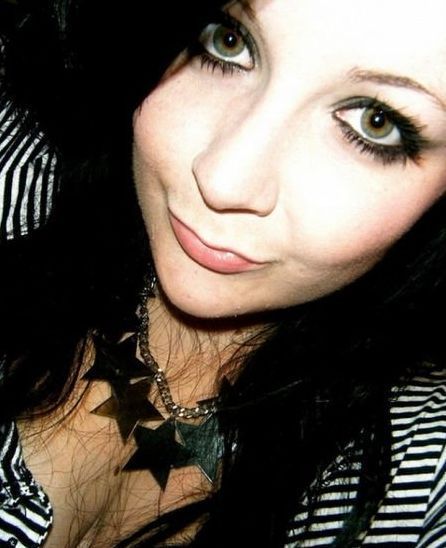|
|
EMO Girl
|
In the wake of the 1991 success of Nirvana's Nevermind, underground music and subcultures in the United States became big business. New distribution networks emerged, touring routes were codified, and regional and independent acts were able to access the national stage. Teenagers across the country declared themselves fans of independent music, and being punk became mainstream. In this new musical climate, the aesthetics of emo expanded into the mainstream and altered the way the music was perceived: "Punk rock no-nos like the cult of personality and artistic abstraction suddenly become de rigueur", says Greenwald. "If one definition of emo has always been music that felt like a secret, Jawbreaker and Sunny Day Real Estate were cast in the rolls of the biggest gossips of all, reigning as the largest influences on every emo band that came after them."
Jawbreaker has been referred to as "the Rosetta Stone of contemporary emo". Emerging from the San Francisco punk rock scene of the late 1980s and early 1990s, their songwriting combined the heft of hardcore with pop punk sensibilities and the tortured artistry of mid-1980s emocore. Singer/guitarist Blake Schwarzenbach focused his lyrics on topics that were personal, immediate, and lived, often lifting them directly from his journal. Though they were often obscure and cloaked in metaphors, their specificity to Schwarzenbach's own concerns gave the words a bitterness and frustration that made them universal and magnetic to audiences. Schwarzenbach became emo's first idol as listeners related to the singer more than the songs themselves. Jawbreaker's 1994 album 24 Hour Revenge Therapy became their most-loved amongst fans and is a touchstone of mid-1990s emo. The band signed to major label Geffen Records and toured with Nirvana and Green Day, but their 1995 album Dear You sold poorly and they broke up soon after, with Schwarzenbach later forming Jets to Brazil. Their influence lived on, however, through later successful emo and pop punk bands openly indebted to Jawbreaker's sound.
Sunny Day Real Estate formed in Seattle during the height of the early-1990s grunge boom. In contrast to Jawbreaker, its members were accomplished musicians with high-quality gear, lofty musical ambitions, intricate songwriting, and a sweeping, epic sound. Frontman Jeremy Enigk sang desperately, in a falsetto register, about losing himself and subsuming himself in something greater, often using haphazard lyrics and made-up words. The band's debut album Diary (1994) was over-the-top and romantic, and the music video for "Seven" received airplay on MTV. The band's ambitious sound challenged other bands to reach further with their own music in sentiment, instrumentation, and metaphor, and represented a generational shift between grunge and emo. Other emo-leaning punk bands soon followed suit, and the word "emo" began to shift from being vague and undefined to referring to a specific type of emotionally overbearing music that was romantic but distanced from the political nature of punk rock. Sunny Day Real Estate fell apart after Diary, as Enigk became a born-again Christian and launched a solo career while the other members drifted into new projects such as the Foo Fighters. They released three more albums through a series of breakups and occasional reunions, but are remembered primarily for the promise of their debut and the shift it engendered in the tastes of underground rock fans.
|
|









